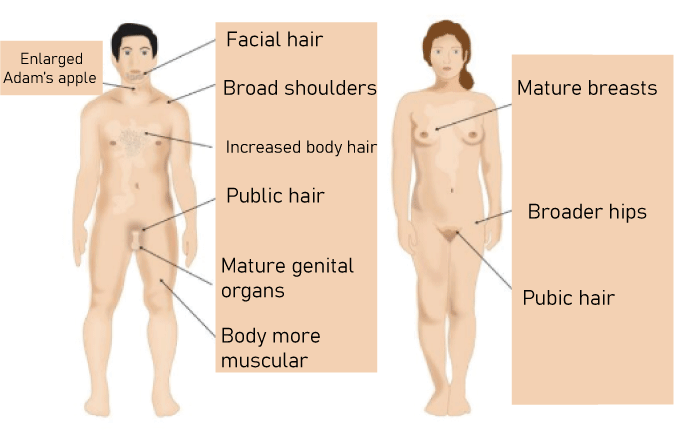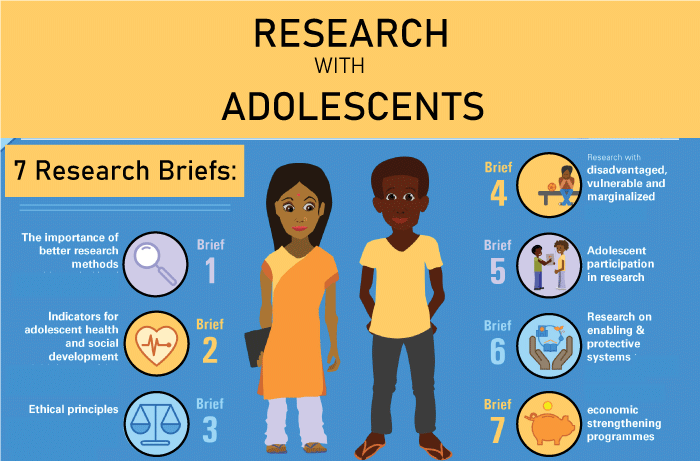Adolescence Definition
Adolescence is the development and growth period between childhood and maturity. Any individual between the ages of 10 and 19 is considered an adolescent by the WHO- world health organization. This age group is included in the WHO term of teenagers, which includes those between the ages of 10 and 24. Adolescence, which in these civilizations is approximately equated to the word teenagers, is often used to describe the time between the ages of 12 and 20. However, in many countries, adolescence is only associated with maturation and the progression of physical changes that lead to reproductive maturity. In some cultures, adolescence is defined more broadly, taking into account the purely physical components of maturity and the mental, social, and moral spheres. Adolescence is when a person learns to manage and guide their sexual desires. Adolescence brings up difficulties of mental (if not physical) distance from parents. The move to self-sufficiency puts a variety of adaptations upon many teenagers, even though this feeling of distance is an important phase in forming personal values. Teenagers also often lack defined social responsibilities, existing in a grey area between childhood and maturity. In Western societies, these problems mostly characterize adolescence, and how one responds to them influences the course of one's adult years. Following the underlying sexuality of infancy, the person also experiences an increase in sexual emotions throughout adolescence. According to several experts, the challenges of puberty have been overstated, and for many teenagers, the development process is essentially painless and trouble-free. Others see adolescence as a demanding and often difficult development phase marked by certain behaviors. Transformation, Both Physical and Psychological
Teenagers have often been portrayed in stereotypes as being rebellious, preoccupied, careless, and bold. Young people go through many physical and psychological changes, which often make it hard for them to understand how to behave. Young bodies get stronger throughout puberty and are loaded with chemicals that stimulate suitable urges to ensure the species' survival. Individuals are ultimately driven to achieve the goals of working for a livelihood and starting a family by acting on those impulses. In the past, many societies established official means for the elderly to assist young people in assuming their societal position. The journey from infancy to maturity was aided through initiations, vision quests, the Hindu samskara life-cycle rituals, and other ceremonial or rites of passage. The focus on teaching suitable clothes, manners, morals, and other behaviors befitting adult status was a standout aspect of such coming-of-age celebrations. Social RestrictionsAdolescence ought to be the finest stage of life, biologically speaking. The teenage years are when most physical and mental abilities, including quickness, strength, fast response, and memory, are almost completely developed. New, radical, and diverse concepts may also significantly influence the imagination throughout adolescence. Teenagers are more resilient than anybody else, as shown by their extraordinary capacity to weather hardships and draw meaning from unpleasant experiences. According to studies, teenagers completely recover from negative moods in approximately half the time adults do. Despite their fortitude, some teenagers find that these years are more trying than enjoyable, at least because of the constraints and limitations often accompanying this stage of life. Physical Movement LimitationsTeenagers spend a lot of time performing things they would rather not do, such as working or sitting at their desks in class for hours, digesting material that is often useless or abstract. Even the best students admit that they would rather be "somewhere else" most of the time in class. Teenagers in Western countries often hang out with their pals in places with less adult supervision. Teenagers are traveling together on a bus. Some teens spend up to four hours per day traveling to and from school, activities, jobs, and friends' homes due to the design of modern American neighborhoods, particularly suburban ones. However, once they have a driver's license, they control how they get from one place to another. Many people use digital gadgets, consume digital material, or interact with friends in their leisure time. However, many teens need more good locations and enjoyable things to engage in, even when they have access to a vehicle. Lack of Genuine Accountability
Next TopicAdverb Definition
|
 For Videos Join Our Youtube Channel: Join Now
For Videos Join Our Youtube Channel: Join Now
Feedback
- Send your Feedback to [email protected]
Help Others, Please Share










